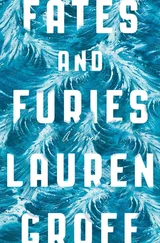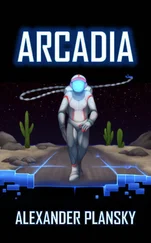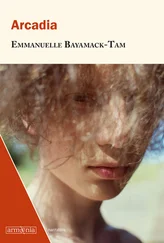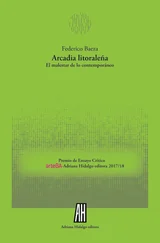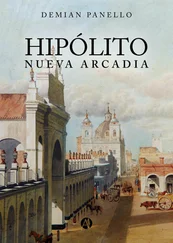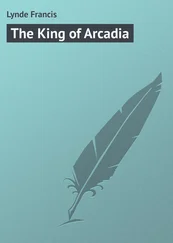Lauren Groff - Arcadia
Здесь есть возможность читать онлайн «Lauren Groff - Arcadia» весь текст электронной книги совершенно бесплатно (целиком полную версию без сокращений). В некоторых случаях можно слушать аудио, скачать через торрент в формате fb2 и присутствует краткое содержание. Год выпуска: 2012, Издательство: Hachette Books, Жанр: Современная проза, на английском языке. Описание произведения, (предисловие) а так же отзывы посетителей доступны на портале библиотеки ЛибКат.
- Название:Arcadia
- Автор:
- Издательство:Hachette Books
- Жанр:
- Год:2012
- ISBN:нет данных
- Рейтинг книги:3 / 5. Голосов: 1
-
Избранное:Добавить в избранное
- Отзывы:
-
Ваша оценка:
- 60
- 1
- 2
- 3
- 4
- 5
Arcadia: краткое содержание, описание и аннотация
Предлагаем к чтению аннотацию, описание, краткое содержание или предисловие (зависит от того, что написал сам автор книги «Arcadia»). Если вы не нашли необходимую информацию о книге — напишите в комментариях, мы постараемся отыскать её.
Arcadia — читать онлайн бесплатно полную книгу (весь текст) целиком
Ниже представлен текст книги, разбитый по страницам. Система сохранения места последней прочитанной страницы, позволяет с удобством читать онлайн бесплатно книгу «Arcadia», без необходимости каждый раз заново искать на чём Вы остановились. Поставьте закладку, и сможете в любой момент перейти на страницу, на которой закончили чтение.
Интервал:
Закладка:
Baby? he says. What happened? She buries her head in his shoulder, and he feels her knobby back. She smells like vodka and smoke and sweat.
I hate girls, she says into his shoulder.
Oh, Bit says. He closes the door. You’re two hours past your curfew.
Shut up, Dad, she says. Can’t you see I’m so, so sad? I hate my life.
She’s just warming up. She needs to take it out on somebody. He is suddenly too tired for this same yelling Grete, again. She launches into the old refrains: he’s too wishy-washy, they’re poor, if only he tried a little harder he wouldn’t be so embarrassing, he wouldn’t be so lonely, he’s not totally repellent even if he is a shrimp.
The antique telephone rings on its stand. He still doesn’t have a cell, loving the anchor of the landline, and to escape from his daughter, he picks up the receiver. A mistake; Grete shouts louder. But she goes silent when she sees his face.
Mr. Stone? the voice in the receiver says again. Do you understand what I’m saying?
Oh, he says, lost. Through the wavery glass of the transom above the door, the streetlight repeats in a stuttering arc.
We’ll be there, he says and hangs up.
Dad? says Grete in a small voice. His daughter has turned stranger in the dim hallway.
Dad? Is it Grannah and Grumpy? she says. Please say something. Please.
He is unable, just yet, to speak. He reaches out a hand, and the feel of her cheek under his fingertips returns the words to him. Pack your bags, he says as kindly as he can manage, and he moves his body, thick and strange as if stuffed with clay, up the stairs.
Bit sits in the darkened room. The hospital churns around them; behind the closed curtains another dawn spreads across the landscape. A lump of Hannah is in the bed, a lump of Grete on a cot below. And bigger than the room itself, bigger than the hospital, bigger than the morning coming creeping toward them, Abe’s absence, biggest of all.
The scene plays over and over in his head as it has all night, in obsessive detail, repeating itself beyond his invention until it becomes truth. He sees his parents as they must have been a year ago, just after Hannah’s diagnosis. They would have been in the hospital courtyard, Hannah on a bench, Abe in his wheelchair beside her. A springlike day during the warm February of last year. There would have been neglected perennial beds with volunteer tulips crowning above the winter weeds. Plastic bags shushing as they slid along the wall. A comically fat bird, a Tartuffe of a finch, jerking upon a cherry branch.
Hannah stuck out her tongue. It was grayish and twitched as if there were tiny creatures inside trying to tunnel their way out.
Fasciculations, she said. Some of my lovelier symptoms. With her good hand, she squeezed Abe’s knee.
ALS, said Abe. I’ll be damned.
Apparently, Hannah said, I’m the damned one. He made a choking sound and she said, I’m sixty-eight, baby. Hardly too young to die.
Between them, like an unacknowledged child, their year of changes noticed but not remarked upon. Hannah had thought she was just getting old, swiftly declining. She could no longer open jars or tweeze the coarse black bristles from her chin. A hollow developed between her thumb and index finger. She tripped, mowing the patchy grass around their house, and cut her head on the blades of the motorless mower. Abe found her half-laughing on the lawn, her face streaked in blood. She choked on her tea. Words became strange in her mouth. Life was effortful.
She didn’t think to go to the doctor until late February, when she could no longer shovel the first and last snow of the year from the walk. This woman, who had mixed concrete by hand and kneaded dough for hundreds, who had picked her husband up out of a bath for over forty years. This strong woman, defeated by two inches of powder.
The sun warmed the skin of their scalps. A woman’s voice floated to them over the air. What are we going to do? Abe said.
We’re not telling Bit and Grete, said Hannah. I can’t be a burden.
All right, Abe said.
We’ll take all our baths together from now on, said Hannah. You wash me, and I’ll wash you. She brazened a smile.
I’ll build us a waterslide so that we can get in, Abe said, wiping his eyes.
The breeze picked up and blew lovingly against them. The finch chattered away.
When I twitch, Hannah said, laughing, it’ll feel like a Jacuzzi.
The details that Bit has concocted seem important: the bird, the tulips, the dialogue he worked out these last hours for accuracy. With details, he builds a barricade against the hopelessness, the rush of the hospital beyond. In the weak light from the crack under the door, he sees Grete’s face in its nest of pink braids. Only in sleep is she so still, his restless, skinny girl. He is old and lives on a single plane of existence where Grete is the primary object; she is young and comfortable on many planes, some he can’t fully guess at, lives at school, lives with her friends, digital lives. He crawls to the ground beside her to watch her breathe. When he wakes, the room is dark but the doctor is standing above him, her face obscured, her hand beckoning him outside.
There are too many people moving in the harsh light of the hall. The doctor hands him a coffee still boiling in its cup. Her sharp features look rested, though she was here to meet Bit and Grete when they came late in the night. When she speaks, she shows her huge white teeth. They make Bit think of ice cubes; when she met them at intake, he had longed, absurdly, to lick them. She hugs him, and she smells like powdered violets, such an antique smell for one so young. It unsettles him. Try as he might, he can’t remember this lovely woman’s name.
If you want to talk. ., she says, her voice fading.
I wouldn’t even know where to start, he says. He hears his anger only when she takes a step back. It is new in him, and not unpleasant. I’m sorry, he says. It’s so much to understand.
Will you sit? she says. He drops onto the chair beside her. Around them, people in blue and pink scrubs move with quick steps toward other people’s disasters. Some wear masks, wary of the new Indonesian virus, even so far away. She says, Tell me.
I have too many questions, he says. Why they didn’t tell us that Hannah was sick. For a full year they hid it. Why is she not on any medication, why did they let the disease go unchecked. Why the fuck they decided to kill themselves, instead of dealing with it like a family.
These are things you’ll have to ask your mother, the doctor says.
If she ever wakes up again, he says, I will.
Oh, Mr. Stone, she says, gently. A nerve has begun to twitch beneath her eye, and she hides it with a hand. Your mother was awake even when the Amish woman found her. Hannah just doesn’t want to open her eyes right now.
Bit touches his knees with his forehead and breathes. He has to restrain himself from rushing into Hannah’s room and shaking her. Gently, the doctor’s cold hand falls on his neck and steadies him.
In time, the doctor’s hand warms and it becomes only another weight on him. There’s a white flutter under his leg as she gives him the note in Abe’s beautiful script. Bit reads and rereads the note. His parents felt blessed to be able to go together, as they had lived together their whole lives, since they were romantic children. The doctor begins to talk of what his parents did. Such elegant phrasing she has, so empty of emotion or blame. He wonders if they teach such detachment in medical school. He holds himself still, so that some might seep into him from her skin.
Between the doctor’s sentences and those in the note, Bit finds the time to hang his own lines of grief. He can see the moment when it became too hard for his parents to take care of one another: how Hannah might have dropped something that Abe couldn’t pick up. Then, just after supper, Abe would have closed his book and wheeled himself to Hannah, opening his palm to show her the pill case. They would have put the house in order, leaving the spoilable food out on the porch for the skunks and raccoons and starving deer, cleaning the compost toilet, writing this note. How they dressed in clean clothes and lay down on their bed. How they split the pills evenly and chased them down with the same glass of cold water. Warm, they held each other and waited for everything to fade, to float away. Abe succeeded. Hannah failed. She returned to Bit.
Читать дальшеИнтервал:
Закладка:
Похожие книги на «Arcadia»
Представляем Вашему вниманию похожие книги на «Arcadia» списком для выбора. Мы отобрали схожую по названию и смыслу литературу в надежде предоставить читателям больше вариантов отыскать новые, интересные, ещё непрочитанные произведения.
Обсуждение, отзывы о книге «Arcadia» и просто собственные мнения читателей. Оставьте ваши комментарии, напишите, что Вы думаете о произведении, его смысле или главных героях. Укажите что конкретно понравилось, а что нет, и почему Вы так считаете.
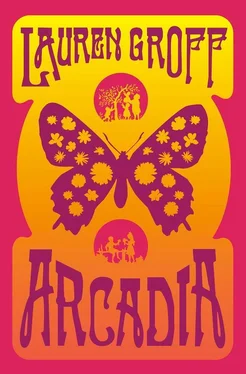
![Andrea Höst - In Arcadia [Touchstone - Extras]](/books/56405/andrea-host-in-arcadia-touchstone-extras-thumb.webp)

